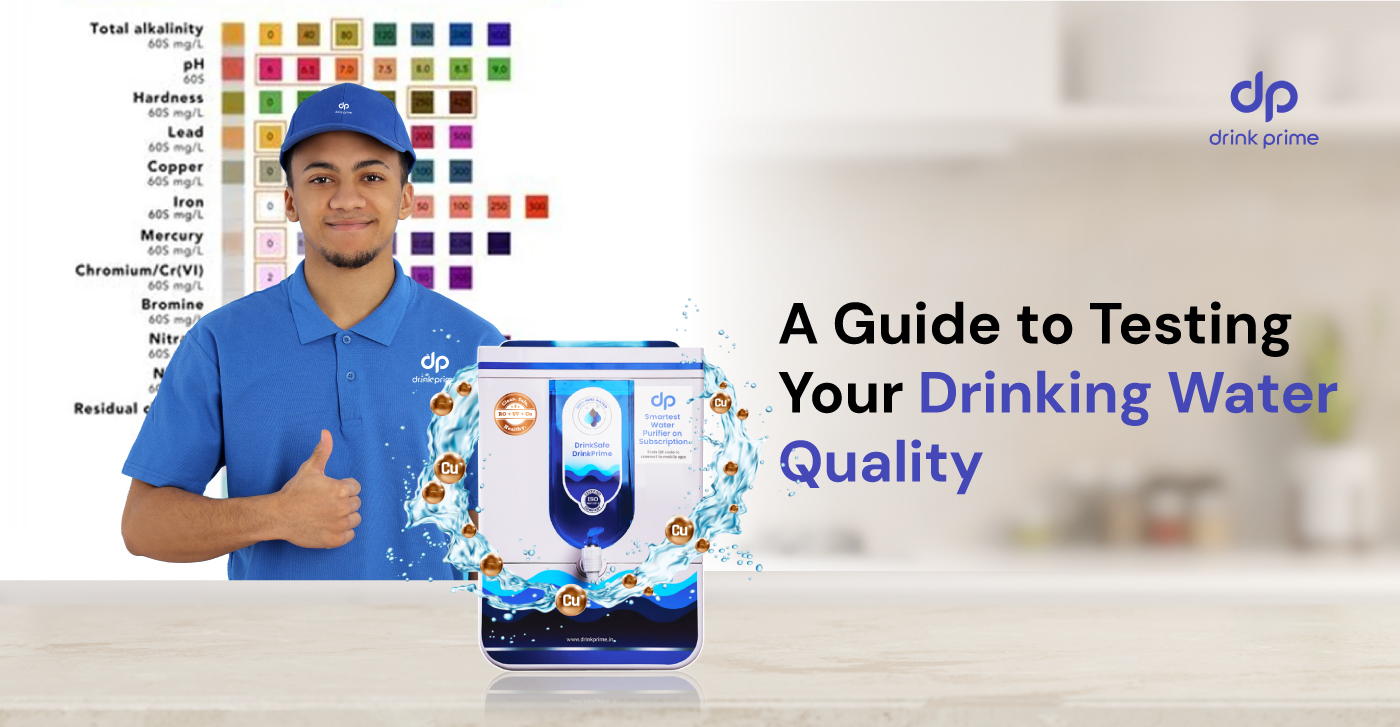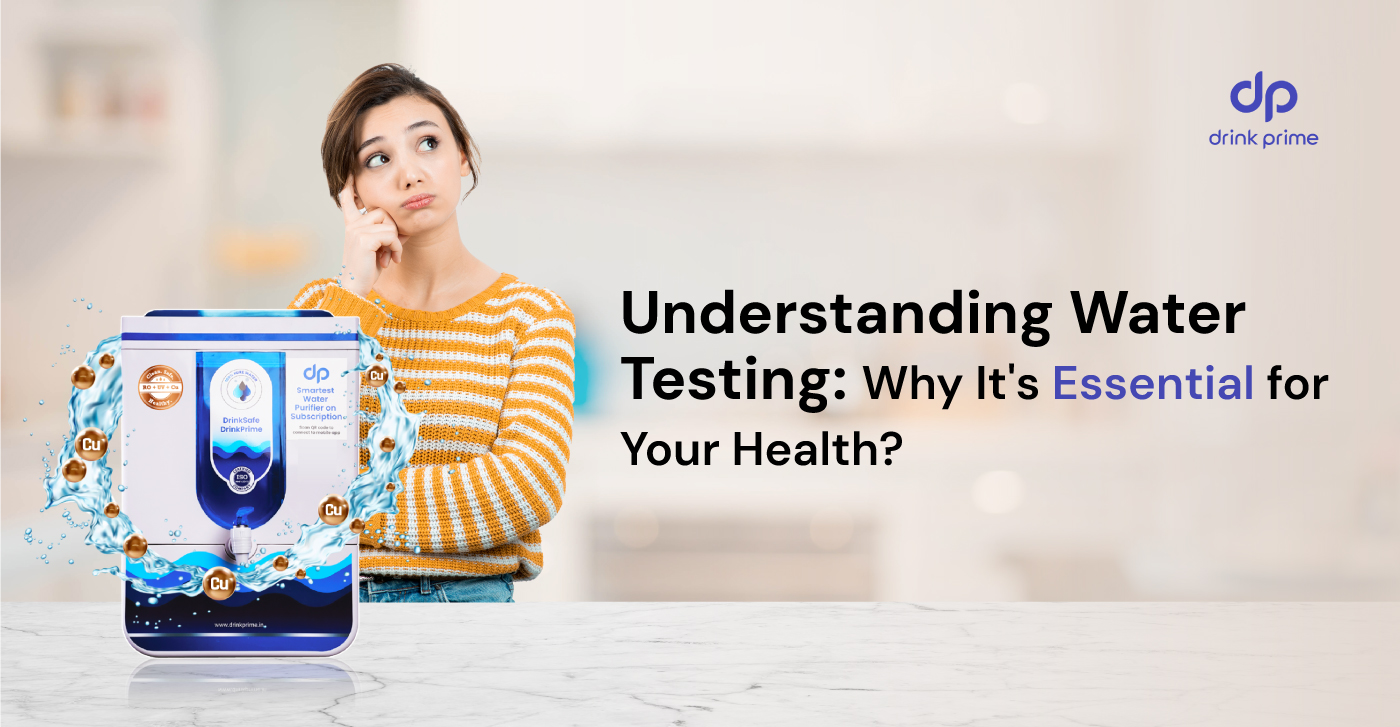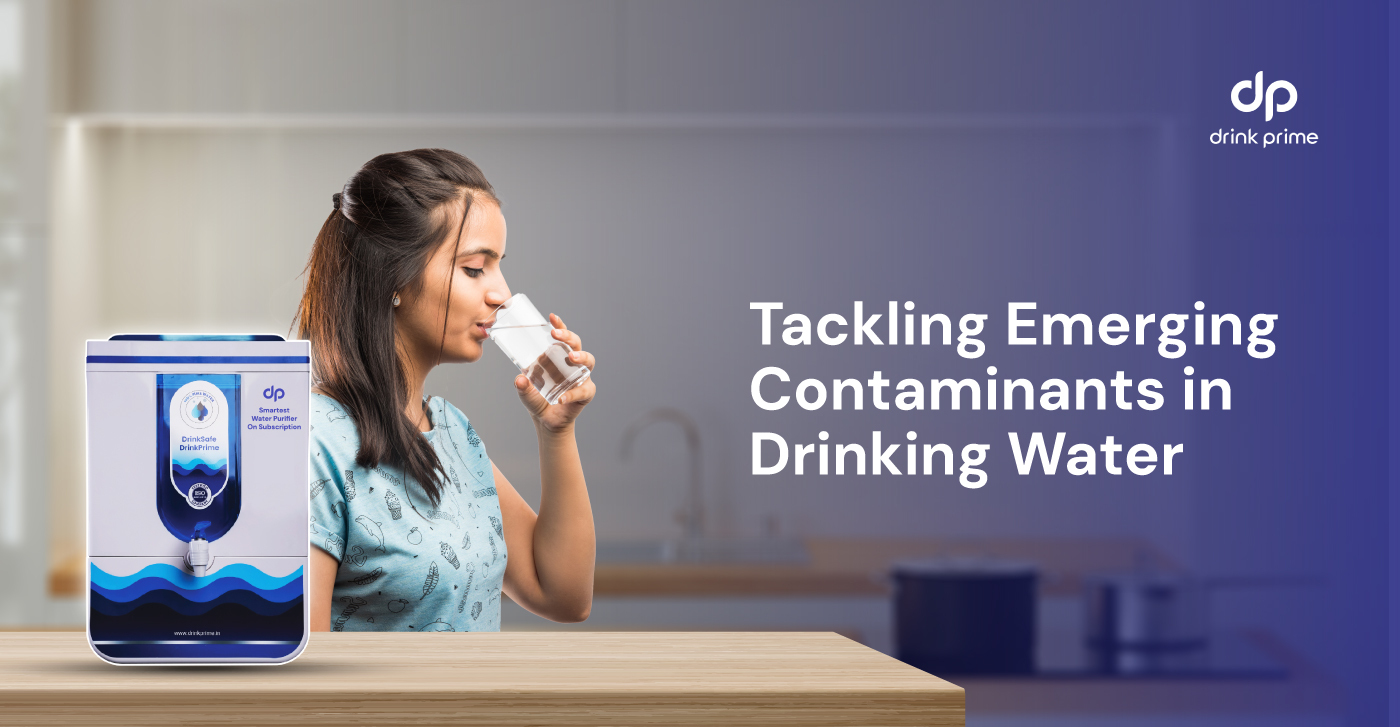Picture this: you’ve been taking care of your hair and following a proper hair care routine but lately, you’ve noticed more hair strands scattered on your comb or shower floor.
Wondering why this happens?
While diet and other factors do play a role in maintaining healthy hair there’s one more factor that we often overlook- water.
Yes, the culprit could be hard water! Hair loss due to hard water is actually quite common among many people across the world. This is because hard water contains high levels of minerals, such as calcium and magnesium, which can adversely affect your locks over time.
Recognizing the impact of hard water on your hair is essential in finding suitable solutions to combat the issue. While preventive measures can be taken to minimize the damage caused by hard water, it’s equally important to understand how it happens.
In this blog, we’ll discuss how hair loss due to hard water happens and explore effective ways to safeguard your hair and maintain its health, vitality, and natural shine. Let’s dive in!
Why is hard water bad for your hair in the long term?
So, does hard water cause hair loss? Well, it’s not as straightforward as a simple yes or no. While hard water can contribute to hair loss, it’s not the sole culprit. Hair loss is a multifaceted issue influenced by a variety of factors, including genetics, diet, stress, and overall hair care routine.
But hard water definitely plays an important role in hair loss. The high mineral content in hard water has some adverse effects on your precious locks. Over time, these minerals accumulate on your scalp and hair follicles, leading to a condition called scalp calcification. This buildup over time clogs the hair follicles, disrupts the natural growth cycle of the hair, and eventually contributes to hair loss.
Moreover, hard water makes your hair dry, dull, and brittle. The minerals in the water strip away the natural oils from your hair, making it more prone to breakage and damage. This leads to hair fall, especially if you already have weak or fragile hair.
Hard water can also disrupt the pH balance of your scalp. Ideally, your scalp should have a slightly acidic pH level, which helps maintain its health and supports hair growth. However, the minerals in hard water can raise the pH level, making your scalp more alkaline. This shift in pH can lead to dryness, irritation, and inflammation of the scalp, all of which can contribute to hair loss.
It’s important to note that hair loss due to hard water can vary from person to person. Some individuals may be more sensitive to the effects of hard water, while others may have a higher tolerance. Factors like hair type, overall hair health, and the duration of exposure to hard water also play a role.
Related Reading: How Tap Water is Damaging Your Hair, Skin, and Nails?
8 effective ways to prevent hair loss due to hard water
Hair loss due to hard water can be distressing, but fear not! There are several proactive steps you can take to prevent or minimize its impact. Here are eight effective ways to keep your locks healthy and vibrant despite dealing with hard water:
1. Stay Hydrated and Eat a Balanced Diet
Drinking plenty of water and consuming a balanced diet rich in vitamins, minerals, and proteins contributes to healthy hair growth. Proper nutrition ensures your hair gets the essential nutrients it needs to stay strong and resilient.
2. Rinse with Bottled or Filtered Water
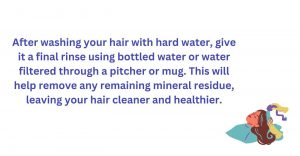
After washing your hair with hard water, give it a final rinse using bottled water or water filtered through a pitcher or mug. This will help remove any remaining mineral residue, leaving your hair cleaner and healthier.
Related Reading: Impact of Hard Water on RO Water Purifiers and How to Prevent it.
3. Use a Water Softener
Installing a water softener in your home reduces the mineral content in your water and prevents hair loss due to hard water. This device works by replacing the calcium and magnesium ions with sodium ions, resulting in softer water that is gentler on your hair and scalp.
4. Install a Shower Filter
Consider adding a shower filter specifically designed to remove minerals and impurities from the water. These filters will help minimize the damaging effects of hard water on your hair and scalp.
5. Use Clarifying Shampoos
Incorporate clarifying shampoos into your hair care routine once or twice a month. These shampoos are formulated to remove buildup and residues from the hair and scalp, including mineral deposits caused by hard water.
6. Deep Condition Regularly
Hard water strips away the natural oils from your hair, making it dry and brittle. To combat this, use deep conditioning treatments regularly or on alternate days to replenish moisture and nourish your hair.
7. Protect Your Hair
When showering, try to shield your hair from direct contact with hard water. Wear a shower cap or tie your hair up to minimize exposure. Additionally, avoid prolonged water exposure by taking shorter showers to prevent hair loss due to hard water.
8. Use Leave-in Conditioners or Hair Serums
Applying leave-in conditioners or hair serums create a protective barrier on your hair strands, helping to seal in moisture and protect against the damaging effects of hard water.
Get 7 Days Risk Free Trial
Conclusion
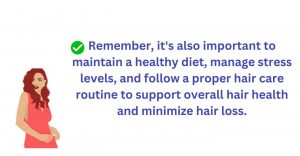
Remember, it’s also important to maintain a healthy diet, manage stress levels, and follow a proper hair care routine to support overall hair health and minimize hair loss. If you’re experiencing persistent or severe hair loss, it’s best to consult a healthcare professional or a dermatologist for a thorough evaluation and personalized advice.
By following these preventive measures, you can help prevent the effects of hard water on your hair and maintain healthy, vibrant locks always!
FAQs
How do I protect my hair from hard water?
To shield your hair from hard water damage, consider installing a shower filter or water softener to reduce mineral content. Use clarifying shampoos weekly to remove buildup, and follow with deep conditioning masks to restore moisture. Rinsing with diluted apple cider vinegar can also help maintain hair health.
How to avoid hair fall due to salt water?
To prevent hair fall from saltwater exposure, rinse your hair with fresh water before swimming to reduce salt absorption. Apply a leave-in conditioner or natural oil like coconut oil to create a protective barrier. After swimming, rinse your hair thoroughly with fresh water and use a clarifying shampoo to remove salt residues. Follow up with a deep conditioning treatment to restore moisture and strength. Wearing a swim cap can also minimise direct contact with saltwater.


